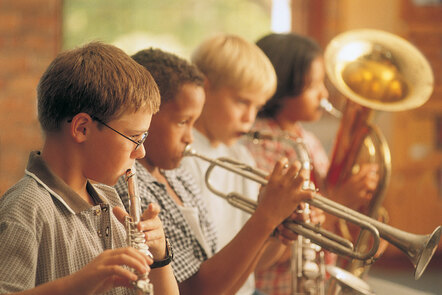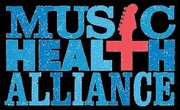New York, NY (Top40 Charts) In this era of intensive parenting, guardians are taking up active roles in the development of their children. Some parents take significant time away from work when their kids are aged between 3-5 years. This duration represents a time in the child when their brain can absorb knowledge more quickly. Neuroplasticity is highest at around this age, and so many guardians are taking advantage of the opportunity to teach their children vital skills.
Music is an excellent tool for preparing young children for future academic pursuits. The impact it has on a developing mind yields positive results later on. This article takes a look at the various merits accrued by children learning music at an early age.
Music Improves Your Understanding of Languages
Learning song lyrics is a terrific way of increasing your vocabulary. For a young student, music can provide them with a source of new words. Interacting with songs and learning about them also helps a student to enhance their reading skills. This ease of comprehension comes from interacting with song lyrics, pitch identification, and hearing the pronunciation of words. Plus, through singing, kids learn how to process the new words that they come across.
The parts of the brain that govern music and language are closely linked. Hence, teaching young students music makes them more receptive to new words and improves their competence in the existing ones. Eventually, they will be likely to perform better in writing, reading, and comprehension tasks.
Learning Music Translates to Organized Studying
Music training, whether instruments or vocals, can be quite involving. It takes plenty of time, effort, and patience to reach the pinnacle of your skills. For starters, you need to practice regularly while continually increasing the difficulty of the sessions so that you can enhance your technique. There may be a stagnation in the results you see. However, when students start working on these skills early in their education, they can learn how to persevere through trying situations.
Understanding the importance of being organized is a vital lesson. Learning music can give a student background of structured training involving numerous practice sessions. Moreover, the learner has to set their own time, aside from the preparation, to put into honing their skills. This heightened productivity will serve a student well when they are in school. They might not go looking for a research paper service because they forgot about an assignment.
Sharpen Your Memory by Learning Music
If you want to learn how to play an instrument, you must begin by understanding the different musical notations. For those inclined to vocal training, mastery of lyrics, vocalizations, tunes, and intonation comes in handy. In both these instances, you will need to engage your memory to track all the nuances of music.
The ability to commit vast amounts of information to memory is a skill most students try to master. You need to remember concepts you have learned in class, along with their proper definitions and explanations. Starting in the musical path early in your education will increase your competence in visual, linguistic, and auditory learning situations. Moreover, it trains your memory when it comes to retaining new information.
Stimulate Brain Development through Learning Music
It is beneficial to enroll your child in a program that teaches music. Numerous researches have been done to determine the effect of musical engagement on young children. For starters, the experience of learning and practicing has the potential of increasing the IQ points of participants.
This increase in intelligence is because the brain starts working on complex problems earlier in the student's life. Since musical engagement involves some level of computational expertise, children can enhance their ability to solve problems.
Improve the Creativity of Students through Music Programs
Music training may include making quick improvisations to pieces while you are performing them. If you are not familiar with a music piece, a professional musician can cover up a mistake without the audience noticing it happened in the first place. Learning music can enhance this ability in students. Creative thinking is vital in school when it comes to challenging courses such as mathematics. You can quickly increase your knack for coming up with innovative solutions.
In conclusion, schools should not abandon music lessons in favor of intensifying other academic programs. Students have a lot to gain from picking up these skills early. Besides, music offers numerous career opportunities. You do not have to become a singer to excel in the art as there are also producers, sound engineers, and composers.
























